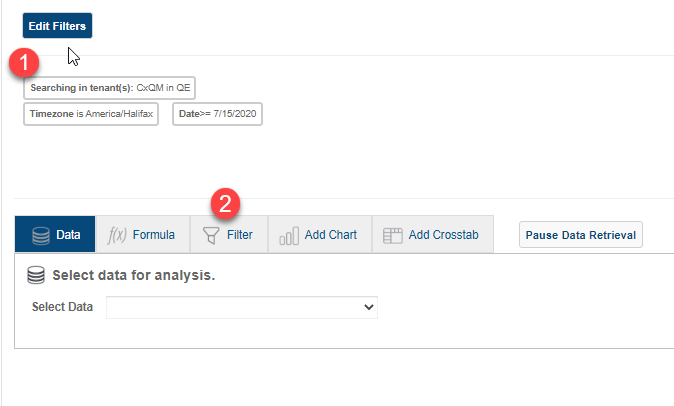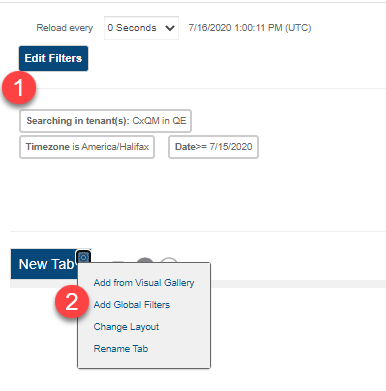About Filters in Historical Reporting
Use filtering in Historical Reporting to specify the subset of data you want to work with and to narrow that data down for meaningful analysis.
All filters (Tenant, Date, Timezone, Channel, Group, Skill, Direction, Flagged) appear for selection but cannot be applied for every data set. Not all filters will work with every data set. For example, the Group filter will work with data sets that contain a group metric.The filters Channel, Group, Skill, Direction, Flagged are not applied by default.
There are three types of filters within Historical Reporting:
Global filters define what data to retrieve from the database. This is the base set of data that you work with in an analysis set, report, or dashboard.
- Global filters that you set in an analysis lock the data that other users can access. For example, you filter the analysis to only show data from the last 60 days. When you build a report that uses this analysis and share it with other users, those users can't access data older than 60 days ago.
Global Dashboard filters(in dashboards only) are options to further refine the data across multiple panels on a dashboard. On custom dashboards, the global filter applies to all panels on the given tab that use the same data sets.
Local filters are options for further refining the data defined in the global filter. Local filters are specific to the report or dashboard panel where you set them.



